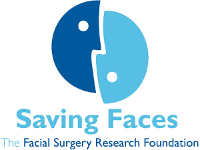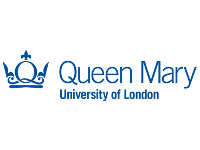| Title of study | Psychosocial factors associated with quality of life and impact of cancer in long-term head and neck cancer survivors |
|
| Short title |
Quality of life in head and neck cancer survivors | |
| Study Type | Retrospective Cohort Study | |
| Status | Completed | |
| Funding | Saving Faces – The Facial Surgery Research Foundation | |
| Ethics | Office for Research Ethics Committees Northern Ireland (ORECNI) – REC reference: 15/NI/0009 | |
Background
Head and neck cancers are a disparate group of cancers, with symptoms, survival and treatment options dependent on subtype and stage. Each year, around 13,000 new cases are diagnosed in the UK (Source: NHS Choices). Oral cancer is the 15th most common cancer in the UK (2010), accounting for 2% of all new cases .
The survival of patients treated for all types of head and neck cancer has improved over the last 40 years (Source: NCIN “Oral Cavity Cancer: Survival Trends in England”, Cancer Research UK CancerStats). For “survivors”, head and neck cancer is a chronic life-altering condition and many patients suffer from physical consequences of cancer treatment such as disfigurement and problems with eating, speaking and swallowing. Decisions about treatment are usually complex and they must balance efficacy of treatment and likelihood of survival, with potential functional and quality of life outcomes.
As cancer survival rates continue to improve and patients live longer, quality of life is now an important treatment end-point.Several factors can have a negative effect on their QOL, such as psychological problems as well as social aspects, such as unemployment and social isolation. These need to be properly identified and adequately understood in order to be addressed in the healthcare of long-term cancer survivors.
In this retrospective questionnaire-based cohort study we plan to gather information on medical, physical, psychological and social measures from approximately 500 survivors of head and neck cancer in order to identify the psychosocial factors that shape their quality of life.
Aims
We want to improve the care that head and neck cancer patients receive and to maximize cancer survivors’ quality of life and well-being. We are therefore trying to find out the psychological, social and cultural factors that affect survivors’ quality of life. This information will provide a basis for developing an online psychological intervention to support head and neck cancer patients and their families.
Interventions
Eligible patients were asked to complete a questionnaire. They were given the chance to invite their partner or a close family member to take part in the study. Participating partners or family members were also asked to complete a questionnaire.
Outcomes
Our primary objectives were:
- To measure the prevalence of psychological distress (symptoms of depression, anxiety and post-traumatic stress disorder) and fatigue in long-term survivors of head and neck cancer compared to rates in the UK population and to those of other cancer survivor groups.
- To investigate the association and interaction of a range of medical, psychological and social factors (e.g. depression, anxiety, appearance concerns, relationship satisfaction, fatigue and social support) with quality of life in head and neck cancer survivors.
- To measure the prevalence of psychological distress and fatigue in partners or close family members of head and neck cancer survivors.
Design
This was a retrospective questionnaire-based cohort study. All eligible patients were sent a study invitation letter, patient information and consent sheet. The patients who consented to participate were sent the study questionnaire. Patients’ partners were also invited to take part in the study.
Chief Investigator
Prof Ania Korszun
Co-investigators
Prof Iain Hutchison
Dr Shah-Jalal Sarker
For further information, please contact the Saving Faces office
Email: info@savingfaces.co.uk


